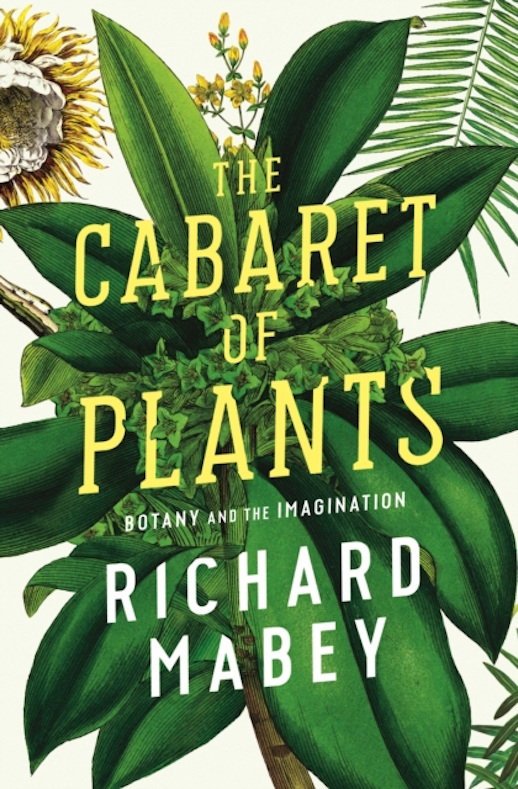 The Cabaret of Plants: Botany and the Imagination
The Cabaret of Plants: Botany and the Imagination
by Richard Mabey
Profile Books, hardback, 386 pages. Out now.
Review by Melissa Harrison
I was going to begin this review by listing Richard Mabey’s previous publications, but given that there’s somewhere between twenty and thirty I’ll let you look up his full back catalogue. My favourites are The Unofficial Countryside; Weeds: the Story of Outlaw Plants and the magisterial Flora Britannica; while his biography of Gilbert White is essential for everyone interested in the origins of ecology, ethology and phenology, which all Caught by the River readers will be, I’m sure. Meanwhile, Nature Cure remains a classic of ‘nature writing’ – whatever the hell that is, and whether you deem it the ‘new’ kind or the ‘old’. In short, he knows his onions (and his orchids).
Mabey’s latest book seems to have gone through several titles and subtitles in its germinative period, testament, perhaps, to the difficulty in adequately classifying such a prodigious and unusual work. Roughly, The Cabaret of Plants is about our long relationship with the vegetal world: how we have used, abused and created new plants for food and healing; how we have understood (and misunderstood) them in art. But it’s also an attempt to escape that history and see plants for what they are; to value them as individual, autonomous beings, rather than just for their usefulness to humankind.
This is to make it sound rather po-faced, when in fact it’s a brilliantly high-octane tour of the green, growing world, from Newton grasping gravity via an apple (a Beauty of Kent, by the way) to South American shamans intuiting ecology using ayahuasca, and from Paleolithic representations of plants to a primrose painstakingly photographed by Mabey’s one-time collaborator, Tony Evans. Mabey sees no conflict between art and science, and so we have gene scientists as well as Romantic poets, and the history of maize alongside made-up plants; there are also Victorian fern fans, baobab lovers and American ginseng growers (it is, Mabey tells us, the most valuable plant crop in the US). Closer to home, old favourites like the Fortingall Yew and the stunted apple at Aldeburgh, so beloved of Roger Deakin, are revisited; he stumbles rather amusingly on the critically endanged ochroleuca orchid in Suffolk, and there’s a description of the Burren that nearly had me booking a ferry ticket to Ireland.
The Cabaret of Plants’ relatively concise chapters let you dip in and out and prevent the book’s vast crop of information from becoming overwhelming. As you are drawn deeper in they build up, like a collage, to create a rich picture of plants as far more than green backdrop, symbols and metaphors, or mute providers of food and fuel; instead, they become a riotous cast of characters finding their own fascinating solutions, just as we do, to the challenges of life on earth. Throughout, Mabey’s insistence on plants’ intrinsic value, and his nudge away from our habitual, anthropocentric view, make the book an essential contribution in the brave new world of ‘natural capital’ and ‘ecosystem services’.
“I worry about the subliminal effects of defining plants as a biological proletariat, working solely for the benefit of our species, without granting them any a priori importance,” he writes in the introduction. His concern is well founded, and as well as being a joy to read, The Cabaret of Plants is a treasure trove for those committed to countering the new, neocapitalist view.
Melissa will be speaking at The Slightly Foxed Readers’ Day on Saturday 7 November at the Art Workers’ Guild in Bloomsbury. More info here.